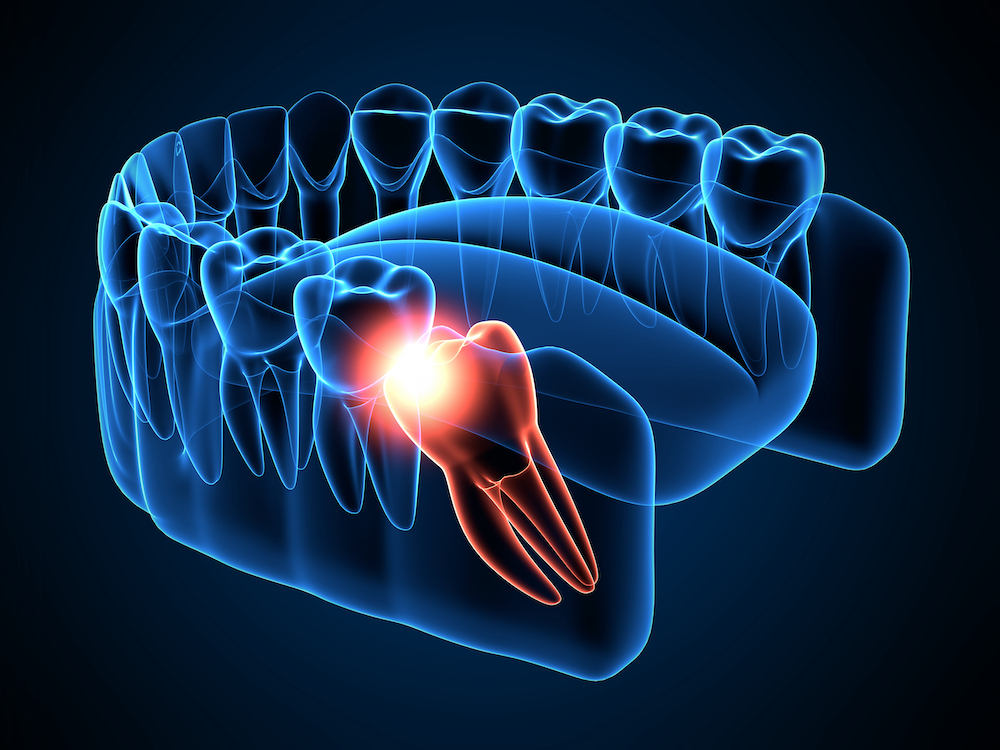
Our teeth grow until we get to around 21 years old, when the last teeth, wisdom teeth, usually erupt. Unlike other teeth, wisdom teeth do not all always emerge. Some people have all four of them emerge, while some only have one or two appear. They are usually located at the back of the mouth after the last molars.
Some adults do not have these mysterious wisdom teeth at all. Whether you get wisdom teeth or not is determined by genetics. Some ethnicities also do not have them. So, why is it essential to have them removed?
What are Wisdom Teeth?
According to anthropologists, wisdom teeth were a part of our evolutionary history. They were an adaptation that allowed us to chew and grind tough foods common to our ancestors. Wisdom teeth have since become like other teeth in the mouth—rarely used.
Despite our independence of the teeth, they are still in our genes, just like the tailbone or appendix. Because all humans have these genes, we have at least one wisdom tooth.
Eruption
Some people have wisdom teeth trapped under the gums, which can cause future issues. Dentists and oral care practitioners usually use dental X-rays to study wisdom teeth. Through imaging technology, they can tell the state of the wisdom teeth.
If you have a wisdom tooth under the gumline, it can be in a compromising condition. They usually fail to erupt because they do not have enough space. When they fail to erupt, they take up different positions under the gum. This abnormally positioned tooth is said to be impacted.
Symptoms of Impacted Wisdom Teeth
One of the main symptoms of an impacted wisdom tooth is pain. The pain will often develop when the wisdom tooth becomes infected. Infection of the wisdom teeth is called pericoronitis. Here are the main symptoms of an infected wisdom tooth:
Bad breath that does not go away even when you brush your teeth.
Swollen and painful gums.
Severe pain when you try to chew using your molars.
Bleeding or discharge of pus around the location of the wisdom tooth.
Low-grade fever and swollen lymph nodes.
Extraction
If you have an impacted wisdom tooth, it should be removed as soon as possible. An impacted tooth can lead to many oral conditions. They can become infected or damage the teeth next to them. Because they are under the gum line, you cannot brush them, making them susceptible to bacteria and decay.
When is Extraction Necessary?
Damages Other Teeth
The hidden tooth can apply pressure to the other teeth, causing them to shift and move. It not only affects your smile but also causes pain. It affects the alignment of other teeth, which may require alignment treatment.
Jaw Damage
Impacted wisdom teeth can cause the formation of cysts that can cause nerve damage and hollow out the jaw.
Sinuses
Wisdom teeth can result in sinus pressure, pain, and congestion.
Cavities
One of the main symptoms of impacted wisdom teeth is swelling gums. Swelling gums can create pockets between teeth that can harbor bacteria that lead to the development of cavities.
For more reasons to remove wisdom teeth, visit Hawaii Oral Surgery at our office in Aiea or Honolulu, Hawaii. Call (808) 731-2220 to book an appointment today.









